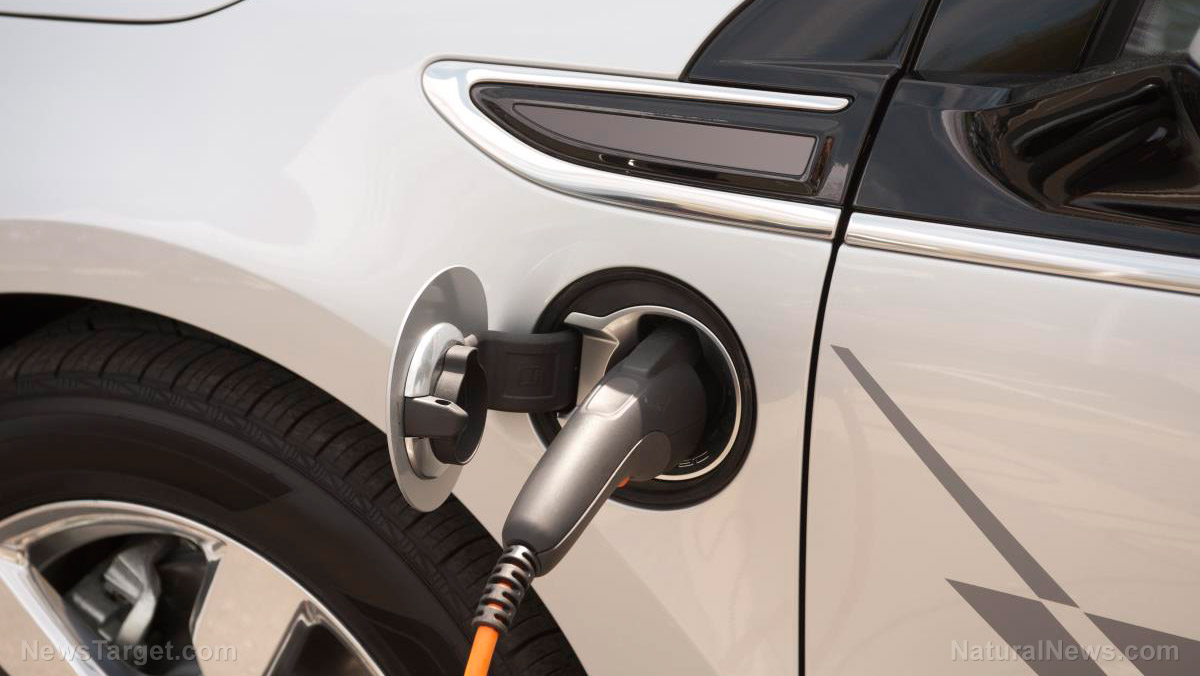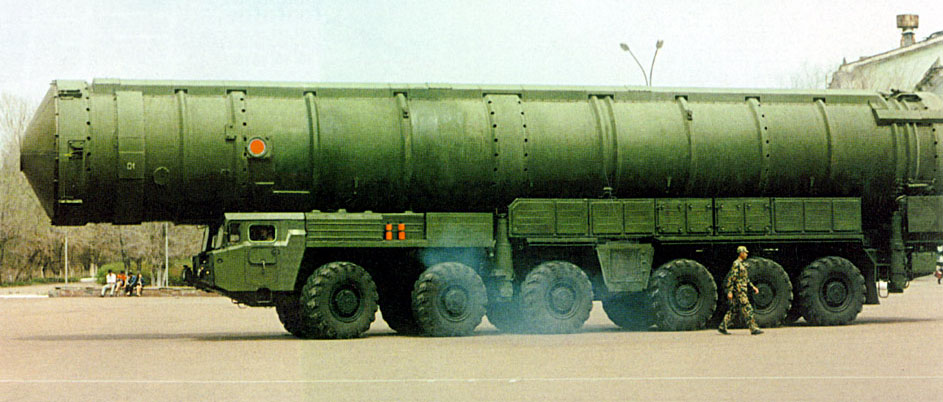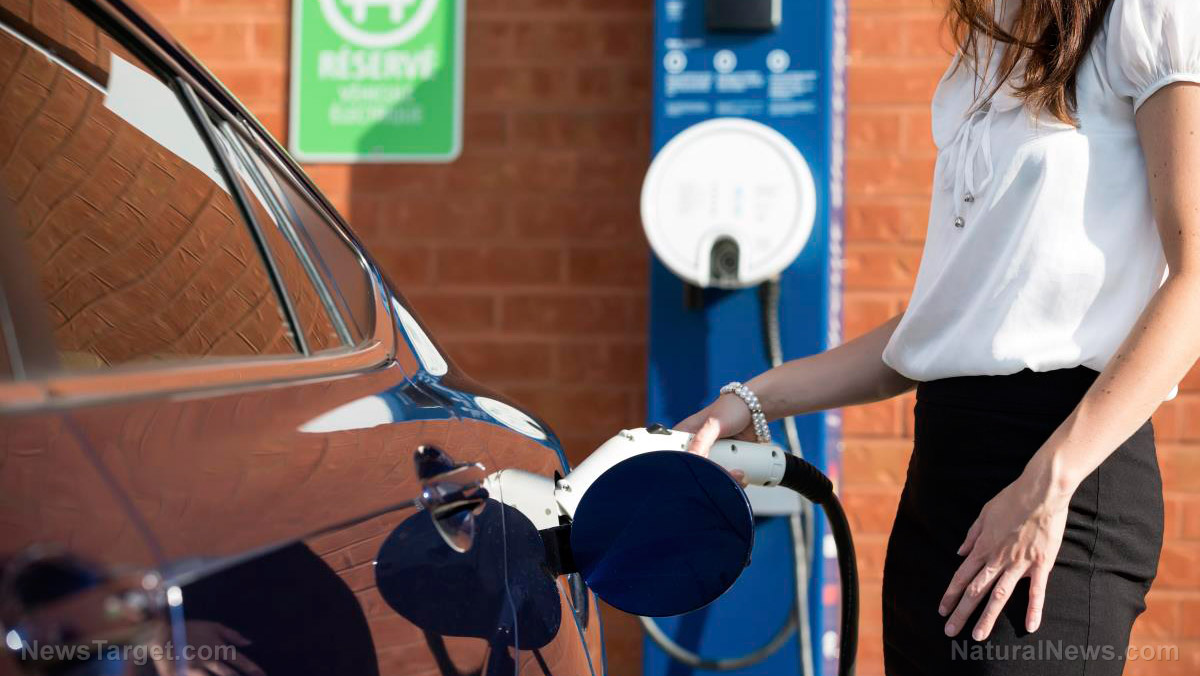Report: Electric trailer trucks are cheaper to own than diesels
03/21/2021 / By Virgilio Marin

A new report from the Lawrence Berkeley National Laboratory shows that heavy-duty electric trucks are 13 percent cheaper to own per mile than diesel trucks at today’s prices. The same report also states that this figure will increase even more with the predicted decrease in battery prices by the end of the decade.
This comes as the fleet industry faces pressures to electrify its trucks. According to the report, medium- and long-haul rigs worldwide comprise only 11 percent of all vehicles on the road yet account for nearly half of the world’s tailpipe carbon emissions and 71 percent of the total particulate emissions.
While the demand for smaller-scale electric vehicles (EVs) grows rapidly, the market for big rigs is slow to follow suit due to perceived high operating costs and limited range, as well as the small number of charging stations. But the report indicates that these and other challenges are now being addressed.
Advantages of electric trucks
Based on an average price of $135 per kilowatt-hour for a battery pack, researchers estimated that currently available Class 8 electric trucks with a range of 375 miles per charge are 13 percent cheaper to operate per mile than comparable diesel rigs.
That translates into a payback time of three years and will save fleet owners up to $200,000 for each electric truck over a 15-year lifetime. And as battery costs continue to fall and other issues are resolved, the researchers forecast that operating cost savings will climb to 50 percent by 2030 compared to diesel trucks.
On top of these, shifting to EVs can also reduce costs incurred as a result of the trucking industry’s carbon emissions. The researchers pointed to other studies that showed diesel trucks are responsible for $58 billion in air pollution damages every year.
Amol Phadke, a staff scientist at Berkeley Lab and the report’s lead author, takes these to mean that the industry can electrify much faster than commonly believed.
“Because electric trucks are already cheaper to own than diesel models, they are creating a financial motive for fleet and independent truck owners to demand more electric options from truck manufacturers,” Phadke explained. (Related: Chilean government plans to convert the nation capital’s 22,000 taxis into electric vehicles.)
Initiatives to boost widespread adoption of electric trucks
While battery-powered semis accommodate less cargo than diesel trucks, the researchers said that this can be addressed by reducing the weight of electric trucks. Additionally, next-generation batteries can increase range and reduce charging times.
As for the charging infrastructure, the current administration recently announced numerous measures to accelerate EV adoption, including a plan to install 500,000 public chargers by the end of the decade.
States and utility companies also started initiatives to support widespread electrification. Last year, 15 states and Washington D.C. signed a joint memorandum of understanding aimed at boosting the market for medium- and heavy-duty EVs and phasing out diesel trucks by 2050.
The states included California, Colorado, Connecticut, Massachusetts, Hawaii, New Jersey, New York, North Carolina, Oregon, Pennsylvania, Washington and Vermont. The consortium committed to developing a plan within six months to identify barriers and propose solutions to boost EV infrastructure.
Early this month, a coalition of six electric utilities announced a plan to establish a seamless network of charging stations from West Texas to the Gulf of Mexico and all the way up to the Eastern seaboard. Each utility will build its own charging stations and each charger will appear as part of a unified network.
The researchers noted that these investments are critical for the widespread acceptance of EVs in the trucking industry.
“The case for society to undertake the necessary investments to facilitate quicker adoption of electric trucks has never been stronger,” said Deepak Rajagopal, a professor of environment and sustainability at the University of California, Los Angeles and one of the report authors.
“But to realize the benefits, we estimate large-scale and coordinated investments are needed.”
Learn more about how America plans to electrify transportation at Robocars.news.
Sources include:
Submit a correction >>
Tagged Under:
cars, diesel, electric cars, electric trucks, electric vehicles, environment, fossil fuels, future cars, future tech, goodtech, green energy, technology
This article may contain statements that reflect the opinion of the author
RECENT NEWS & ARTICLES
COPYRIGHT © 2017 FUTURETECH.NEWS
All content posted on this site is protected under Free Speech. FutureTech.news is not responsible for content written by contributing authors. The information on this site is provided for educational and entertainment purposes only. It is not intended as a substitute for professional advice of any kind. FutureTech.news assumes no responsibility for the use or misuse of this material. All trademarks, registered trademarks and service marks mentioned on this site are the property of their respective owners.





















